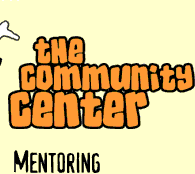 
|
||
Identifying a Mentor or Mentoring ProgramSome of you may already be able to identify a mentor in your life (a parent, relative, or friend). Some of you, like many teens at The Youthhood, wish that you had someone like that in your life. There are two ways you can take action to find a mentor. Locate mentor organizations and make an appointment to connect with a mentor.Work with your Youthhood Guide, teacher, parent, or school guidance counselor to do a search for local mentoring programs. There is a national organization called The National Mentoring Partnership. They have a short training section on their website on how to find a local mentor and how to start thinking about what you would like from a mentor. Here are some of their ideas:
So, begin the process of looking for a mentor by first thinking about what you want in a mentor and what goals you hope to achieve. Ask yourself, who am I today and who do I want to be tomorrow? Once you have answered those questions, contact one of the local organizations listed under your state at the website above or go to the yellow pages of your phone book. You can also find a mentor on your own by asking someone you know if they would be your mentor. Talk to your Youthhood Guide, parents, friends, neighbors, teachers, spiritual leaders (ministers, pastors, priests, rabbis, etc.), or co-workers. Tell them what you want and why you think they would be a great mentor for you. Don’t give up if they say no; just keep trying until you find someone who is a good fit for you! Develop a mentoring program within your school or community.If you want to start a mentoring program in your school or community, begin by talking to and networking with other mentoring programs. Find out how they started, what problems they ran into, and what supports they found most helpful. Using that knowledge, you can begin to develop your own ideas for what works, what doesn’t, and what you want in a mentoring program at your school. Once you have some ideas and a good plan, you might want to present this to the school board (with the support of a teacher or adult you trust) and ask them to help make this become reality. Don't give up. Good luck. You can do it! Try a Youthhood activity:Browse a Web site:
|
||
What Can I Do Here? | Help FAQs | Curriculum Guide
Privacy | Disclaimer | About | Contact Us | Homepage
Last updated on December 5, 2018
 |
 |
 |
©2006 Regents of the University of Minnesota
The University of Minnesota is an equal opportunity educator and employer. Online Privacy













